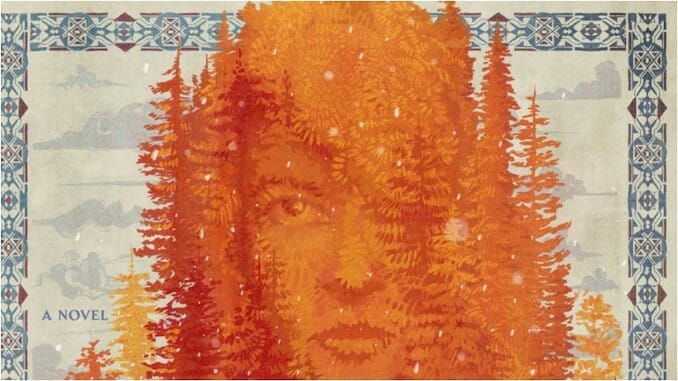Exclusive Cover Reveal + Excerpt: The Witch and the Tsar Reimagines the Tale of Baba Yaga

One of the most welcome publishing trends over the past few years has been the rise of the female-focused mythological retelling. From Madeline Miller’s Circe and Jenny Saint’s Ariadne to Genevieve Gornichec’s The Witch’s Heart and Laura Sebastian’s Half Sick of Shadows, the women who have languished for far too long in the margins of men’s more famous historical tales are finally beginning to get their due. (As well as proper stories of their own at last.)
Debut author Olesya Salnikova Gilmore clearly aims to do something similar for one of Slavic folklore’s most famous figures in her first novel. Titled The Witch and the Tsar, the historical fantasy mixes mythology with Russian history to reinvent and reclaim the story of Baba Yaga, a figure who is most often remembered—and depicted in popular culture—as a deformed, physically repulsive old woman. She allegedly dwells in a magical forest hut that stands on chicken legs and is known for her ambiguous and often dangerous nature.
But Gilmore’s story will attempt to turn our assumptions about this infamous figure on their heads, recasting the much-maligned immortal witch of legend as a woman willing to risk everything to save Russia and her people from Ivan the Terrible.
Here’s the official description from the publisher:
Yaga is used to living on her own—a half goddess in possession of magic, she understands why humans would fear her, call her evil, and fabricate cruel stories about her. But when her old friend Tsarista Anastasia comes to Yaga’s hut seeking aid, she knows that whatever the cost, she must step out of the shadows of legend to protect the land she loves.
As she travels to Moscow, Yaga realizes that Russia is on the brink of devastation. Tsar Ivan—soon to become known as the Ivan the Terrible—grows more unstable day by day and the tsaritsa has been cursed with a mysterious illness. But what Yaga can’t know is that the destruction of Russia is being orchestrated by a cunning and furious goddess who wishes to destroy Russia just as much as Yaga longs to protect it. On this journey, Yaga will face impossible choices, but with those decisions will come the opportunity to learn her true purpose as a goddess and a witch. .
The Witch and the Tsar will hit shelves on September 20, 2022, and we have not only an exclusive reveal of the (gorgeous!) cover below but an excerpt from the story itself!

![]()
Late May 1560
When my owl landed on my shoulder, I knew that heartbreak was not far behind.
It was not that twilight tasted differently, though on my tongue, the humid spring air had the bitterness of snowfall. It was that, even this deep in the Russian forest, dusk bled into the light with infuriating leisure. The clouds had smothered the last of the sun’s rays in scarlet. Yet day clung on, delaying what mortals intended to find their way to my izbushka.
-

-

-

-

-

-

-

-

-

-

-

-

-

-

-

-

-

-

-

-

-

-

-

-

-

-

-

-

-

-

-

-

-

-

-

-

-

-

-

-








































